What does it feel like to quit a party?
- Published
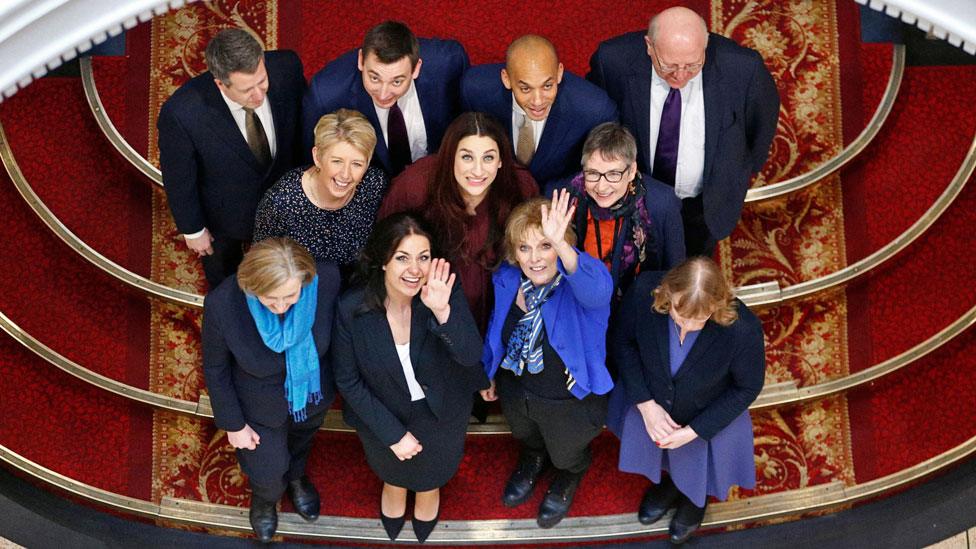
What will the MPs who have quit their parties to form a new centrist group in Parliament be feeling right now? Scared? Relieved? Excited? Or filled with sadness and even a touch of regret?
It was easy to see all of those emotions on display at the press conferences - two days apart - in which seven Labour MPs and then three Conservatives announced that they were quitting (the 11th member of the group, Joan Ryan, did not hold a press conference of her own).
But the tone of the two events was different.
The Labour defectors all spoke about what the Labour Party meant to them, how they had joined it as young people, filled with idealism and a desire to improve the lives of working people.
But, they said, the party had changed beyond all recognition under Jeremy Corbyn and they could no longer be part of it.
In other words: "It's not me, it's you."
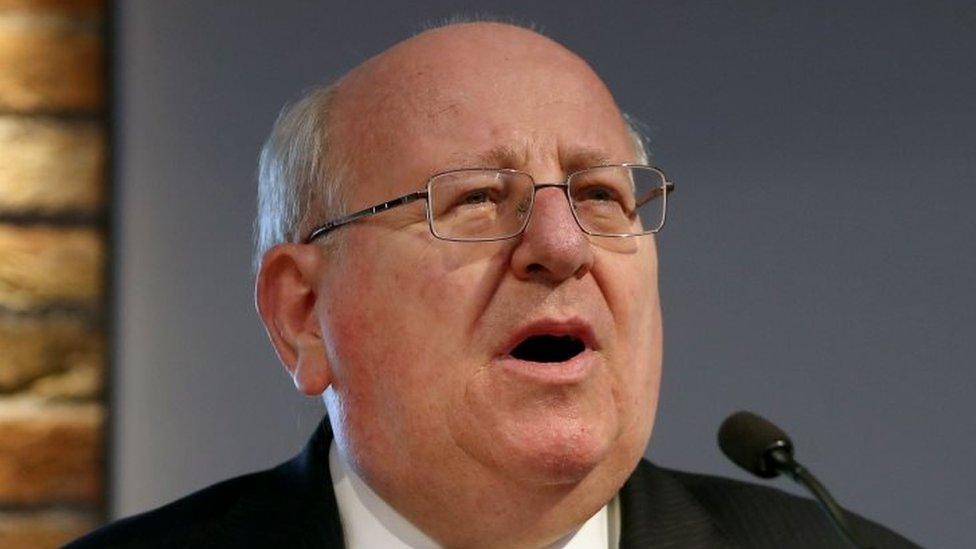
Mike Gapes: Labour to my core
Mike Gapes - Labour MP for Ilford South since 1992 and a party member since 1968 - was, perhaps understandably, the most visibly moved by the occasion.
"I have always considered myself Labour to my core. I grew up in a working-class family, in a council house in Chigwell, in Essex," he told the audience.
He spoke about his father, "a postman and trade union branch secretary", and how he had served the party "at every level" in his long career.
Angela Smith spoke at length about her working-class parents and how as a young girl she had cheered for then Labour leader Harold Wilson in 1966, when the rest of the country had been cheering England on in the World Cup.
Others were less sentimental about Labour. Chuka Umunna said he was fed up with the "old tribal politics", adding: "You don't join a political party to spend years and years fighting the people in it."
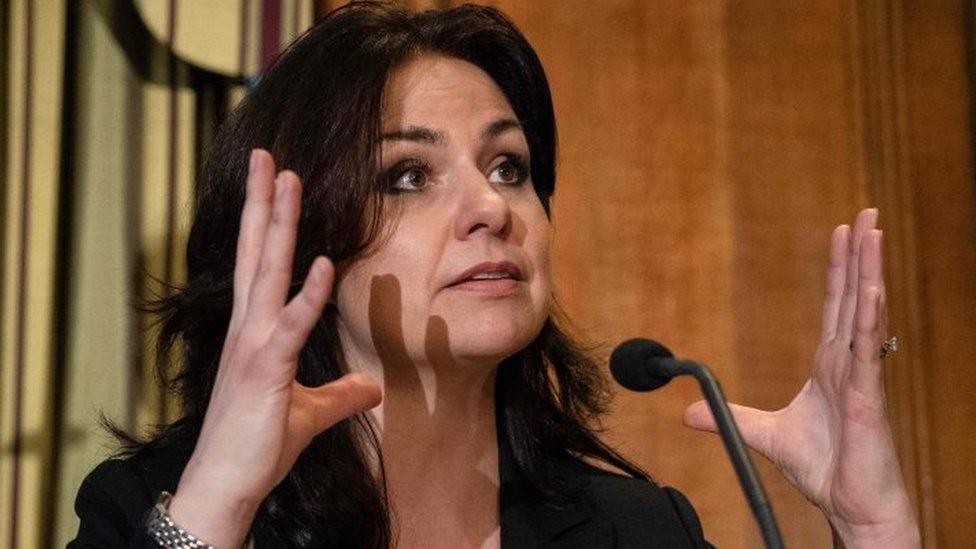
Heidi Allen: I feel excited
There were mixed emotions at the Conservative event too, with Anna Soubry clearly finding it difficult at times, but there was a lot of laughter too, and less talk about family and background.
Heidi Allen, who opened the event, was upbeat and business-like, as if she was leaving a job rather than breaking up a family.
"I feel excited, so excited. In a way that I haven't felt since I was first elected - and a sense of liberation," said the former Tory MP, who described the breakaway group as the "three Amigos".
Ms Allen does not have deep roots in the Conservative Party - she joined it in 2011 - after a successful career in business.
The Conservative Party - rather than a creed or a way of life - had been a career choice for her, she said. And she had been inspired to "serve my country" by the 2011 London riots, having previously had no interest in politics.
Like fellow defector, Sarah Wollaston Ms Allen was a product of David Cameron's efforts to open up the Conservative Party to a more diverse and interesting range of MPs, with real-life experience.
Dr Wollaston, a GP, was the first Conservative MP to be selected in a US-style open primary, a postal ballot of everyone in her Totnes constituency, in 2009.
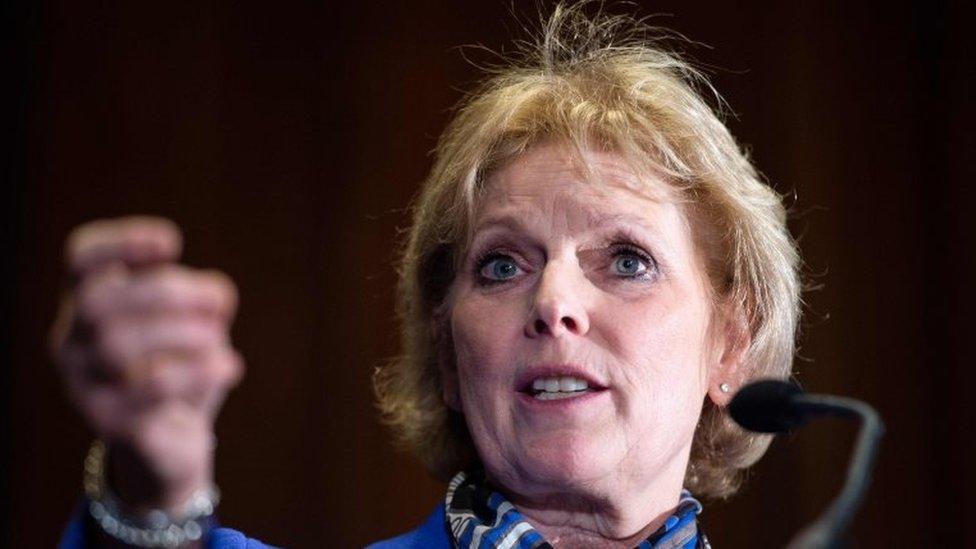
Anna Soubry: A considerable amount of heartache
Ms Allen also took part in an open primary, in South East Cambridgeshire, which she narrowly lost, before being selected to replace the retiring Andrew Lansley in South Cambridgeshire.
Both have proved to be far too independent-minded for the Conservative Party whips, perhaps feeling they owe their first loyalty to their constituents rather than the party.
And Dr Wollaston said she would not put herself forward as a Tory candidate now - because the party had changed so much.
The open primary system, meanwhile, appears to have been dropped.
And it was clear from Anna Soubry's speech that all three believe Mr Cameron's attempt to modernise the Conservative Party is equally dead in the water.
Mr Cameron - in a rare public comment - said he had backed open primaries and he respected the decision of Dr Wollaston and Ms Allen to quit the party but he disagreed with them.
"We need strong voices at every level of the party calling for the modern, compassionate Conservatism that saw the Conservative Party return to office," said the former Tory leader.
Anna Soubry told the Times Red Box podcast Mr Cameron made a last-ditch bid to try to stop the three from quitting, sending them a text saying: "Is it too late to persuade you to stay?"
Ms Soubry - who first joined the Conservatives as a student in the 1970s - was more sentimental about the party, in her speech.
"You don't leave a political party you have called home, without a great deal of thought and a considerable amount of heartache," she said.
But, she added, she had always been a member of the pro-EU "one-nation" Tory faction and now the party was entirely run by the "awkward squad" of hard Brexiteers in the European Research Group.
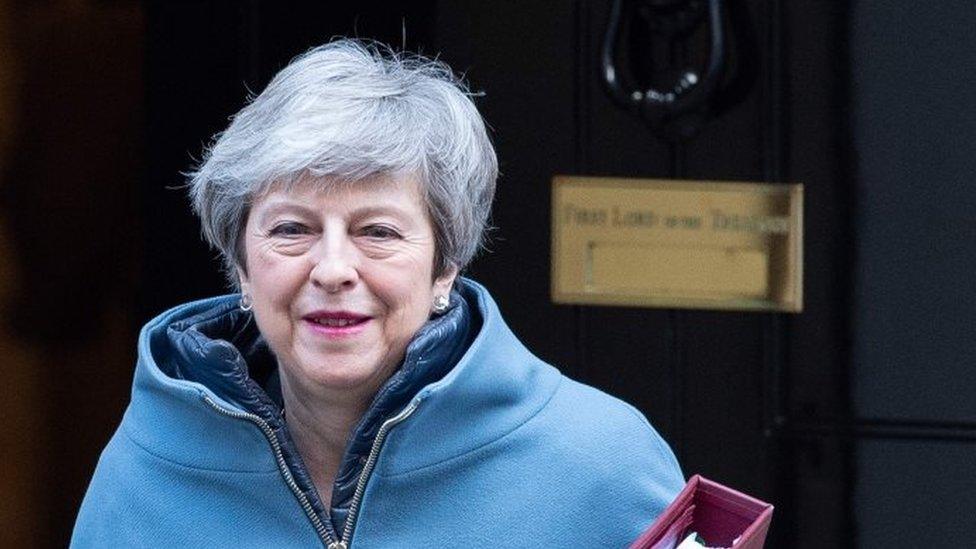
What does Theresa May make of it all?
The ERG, which is headed by Jacob Rees-Mogg, is arguably far more in tune with the Conservative Party membership - who, polls suggest, are a Eurosceptic bunch (although the defectors say this is because local branches are being "infiltrated" by former UKIP members).
What Theresa May makes of all this is anybody's guess.
As Tom McTague pointed out in a piece for Politico, external, even her closest associates have trouble working out what she thinks.
But she is someone who puts a high value on party loyalty.
To a far greater extent, perhaps, than the MPs who have now walked out of it, the Conservative Party has been her life.
She met her husband, Philip, at a Tory party dance, at Oxford University, and she is thought to do most of her socialising with fellow party members.
Leaving a political party because you profoundly disagree with the direction it is taking might seem an obvious thing to do for those of us who have never been a member of one, let alone an MP.
But it is not as straightforward as that for some. And factors such as family tradition, loyalty to friends, and the sheer amount of time and work devoted to the cause - even if you no longer believe in it - will be playing on the minds of MPs thinking of joining the breakaway group in the coming days.